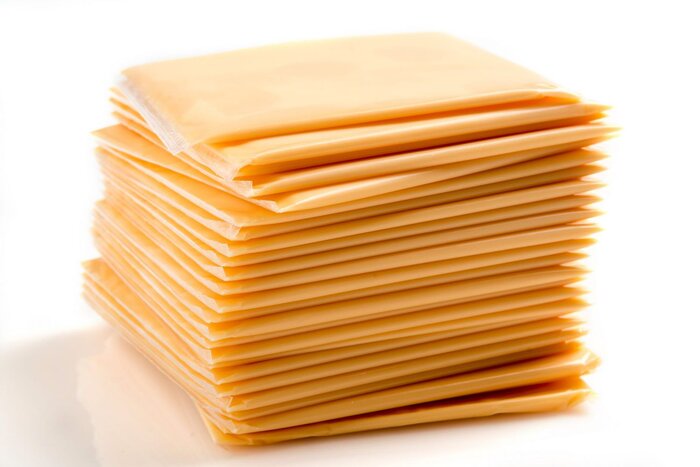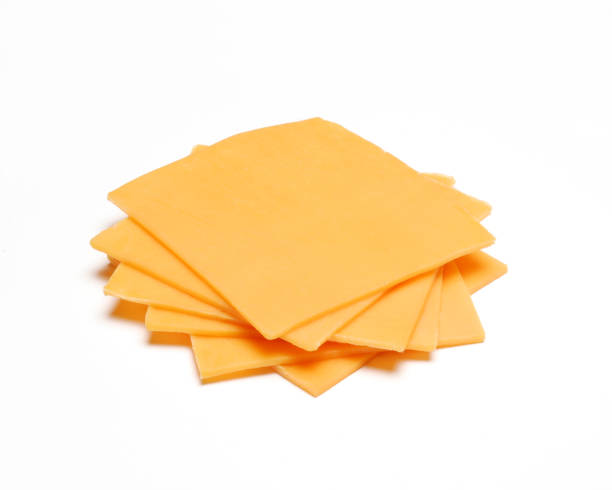Slice cheese Nutrition: Understanding the Facts About Calories, Protein, Fat, Carbs, and Vitamins
If you're a cheese lover, you've probably heard people say that cheese is unhealthy and should be avoided if you're trying to maintain a healthy diet. But is that really true? In this blog post, we'll take a closer look at the nutritional facts of sliced cheese and understand how it can fit into a balanced diet.
Calories in Slice Cheese - How Many Calories In A Slice Of Cheese

One slice of American cheese typically contains around 70 calories. This might seem high, but it's important to remember that cheese is a high-fat food, and fat contains more calories per gram than protein or carbohydrates. However, it's also important to remember that calories aren't the only thing that matters when it comes to nutrition.
Protein in Slice Cheese - How Much Protein In A Slice Of Cheese
Cheese is a good source of protein, which is important for building and repairing muscles. One slice of American cheese contains around 4 grams of protein. While this might not seem like a lot, it can add up quickly if you eat several slices of cheese throughout the day.
Fat In Slice Of Cheese - How Much Fat In A Slice Of Cheese
As we mentioned earlier, cheese is a high-fat food. One slice of American cheese contains around 6 grams of fat, with 4 grams of that being saturated fat. While saturated fat has been linked to heart disease, recent studies have shown that it might not be as bad for us as we once thought. However, it's still a good idea to limit your intake of saturated fat and opt for healthier fats like monounsaturated and polyunsaturated fats.
Carbs In Slice Of Cheese - How Many Carbs In A Slice Of Cheese

Cheese is a low-carb food, with one slice of American cheese containing less than 1 gram of carbohydrates. This makes cheese a good option for people who are following a low-carb or ketogenic diet.
Vitamins in Slice Cheese
Cheese is a good source of several important vitamins and minerals, including calcium, vitamin B12, and phosphorus. Calcium is important for building and maintaining strong bones, while vitamin B12 is important for red blood cell formation and nervous system function. Phosphorus is important for bone health and also plays a role in energy production.
Are Cheese Slices Good For You
Whether or not slice cheese is good for you depends on a variety of factors, including your individual nutritional needs, your overall diet, and how much cheese you consume.
On the one hand, cheese is a high-fat food that can be calorie-dense, so consuming too much cheese can contribute to weight gain and other health issues. However, cheese is also a good source of protein and several important vitamins and minerals, including calcium and vitamin B12.
It's important to note that not all cheese is created equal. Some types of cheese, such as blue cheese and feta cheese, are higher in sodium than others, which can contribute to high blood pressure and other health problems. Additionally, some people may have lactose intolerance or other sensitivities to dairy products that can make consuming cheese uncomfortable or unhealthy for them.
In general, if you enjoy cheese and are looking to incorporate it into your diet, it's a good idea to choose low-fat or reduced-fat varieties, and to consume cheese in moderation. One or two slices of cheese per day can be a healthy addition to a balanced diet, but consuming large amounts of cheese on a regular basis can be detrimental to your health.
Overall, slice cheese can be a part of a healthy diet in moderation. While it is high in calories and fat, it's also a good source of protein and several important vitamins and minerals. If you're trying to maintain a healthy diet, it's important to remember that all foods can fit into a balanced diet in moderation. So go ahead and enjoy a slice of cheese on your sandwich or in your omelet, just don't go overboard!